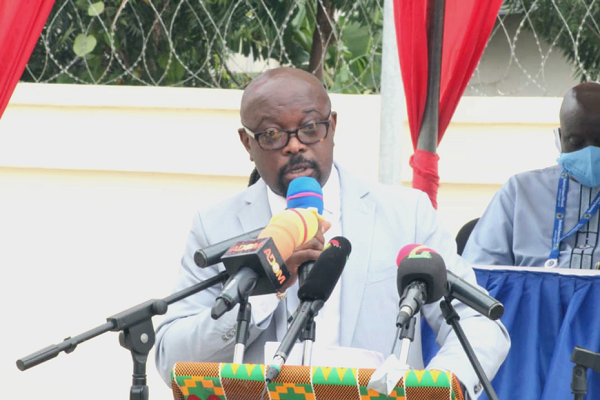Electricity Company of Ghana (ECG) and Ghana Water Company Limited (GWCL) have activated the free supply of electricity and water to lifeline consumers under the COVID-19 relief package as directed by the government.
This covers consumers who use between zero and 50 kilowatts per hour of electricity per month and domestic customers on category 611 who consume between zero to five cubic metres of water in a month.
This is in line with the government’s decision to continue to absorb bills of active lifeline electricity and water users for January, February and March 2021.
COVID-19 relief
Lifeline customers have benefited from the government’s free utility relief since April 2020 when the nation began implementing various interventions to mitigate the impact of the pandemic on local households.
Those interventions saw the public enjoying free water supply as well as 50 per cent of electricity supply for free from April to June.
Subsequently, the intervention was extended to lifeline consumers to the end of year.
However, in his 21st address to update the nation on the COVID-19 situation, President Nana Addo Dankwa Akufo-Addo announced the extension of the relief to lifeline consumers for another three months.
In that Sunday, January 3, 2021, address, President Akufo-Addo said the decision to extend the relief package was due to the persistent hardships in the country owing to COVID-19.
“You will recall that in our quest to shield you from the effects of the virus, the government took the decision to provide relief to Ghanaians, which included the absorption of electricity and water bills. This relief package ended in December. However, with the continuing difficulties occasioned by the pandemic, I want to state that the government intends to continue to support the most vulnerable in our society,” he said.
“Government will, thus, continue to pay the electricity bills for our nation’s one million active lifeline customers for the next three months, i.e. January, February, and March. Additionally, all 1.5 million customers of the Ghana Water Company, whose consumption is not more than five cubic metres a month, will not pay any bills for the next three months, i.e. for the months of January, February and March. This relief package will be reviewed at the end of March,” the President stressed.
In separate interviews, the two utility companies explained that there would be no bills presented to consumers during the period this latest relief would last.
Electricity
The Managing Director of ECG, Mr Kwame Agyeman-Budu, said the initial challenges with the arrangement had been dealt with, and that the company would continue to deliver services to the vulnerable.
“After the initial challenge, ECG has been able to effectively serve the lifeline consumers, and we will continue to ensure that they enjoy the relief package.
“The only challenge we encounter is the calls from people who benefited earlier but per their current consumption do not qualify, and have become upset by that,” he said.
Per estimation, the zero to 50 units of electricity in a month cost up to GH¢20, and about 1.65 million consumers — one million served by the ECG and 650,000 served by the Northern Electricity Distribution Company (NEDCO) — have been benefiting.
Mr Agyeman-Budu further said the government had also paid the bills on time, meaning the operations of the company had not been affected by the COVID-19 relief effort.
He said while prepaid meter users would be automatically credited with their free lifeline units, customers on postpaid meters would have their bills absorbed.
Cut-off point
The Head of Public Relations and Communication of the GWCL, Mr Stanley Martey, explained that customers who used water beyond the five cubic metre range would be excluded from the government’s relief.
He stated that the objective for the cut-off point was for consumers to use the water judiciously to reduce the pressure in the pipelines.
“This is better because with the first one there was no cut-off, and some people misused the water. As a result, it affected the pressures in the line to the extent that people living further away from the source couldn’t get regular flow, and we had to do a lot of things to build on the pressures,” he said.
Payment processes
Mr Martey said the company had received payment from the government up to October, and processes were still ongoing for the arrears to be paid.
Before the figures were submitted to the Ministry of Finance, he said, all meters at the district level were read every month and submitted to the regions for auditing purposes before subsequent transmission to the head office.
Source: Graphic Online





